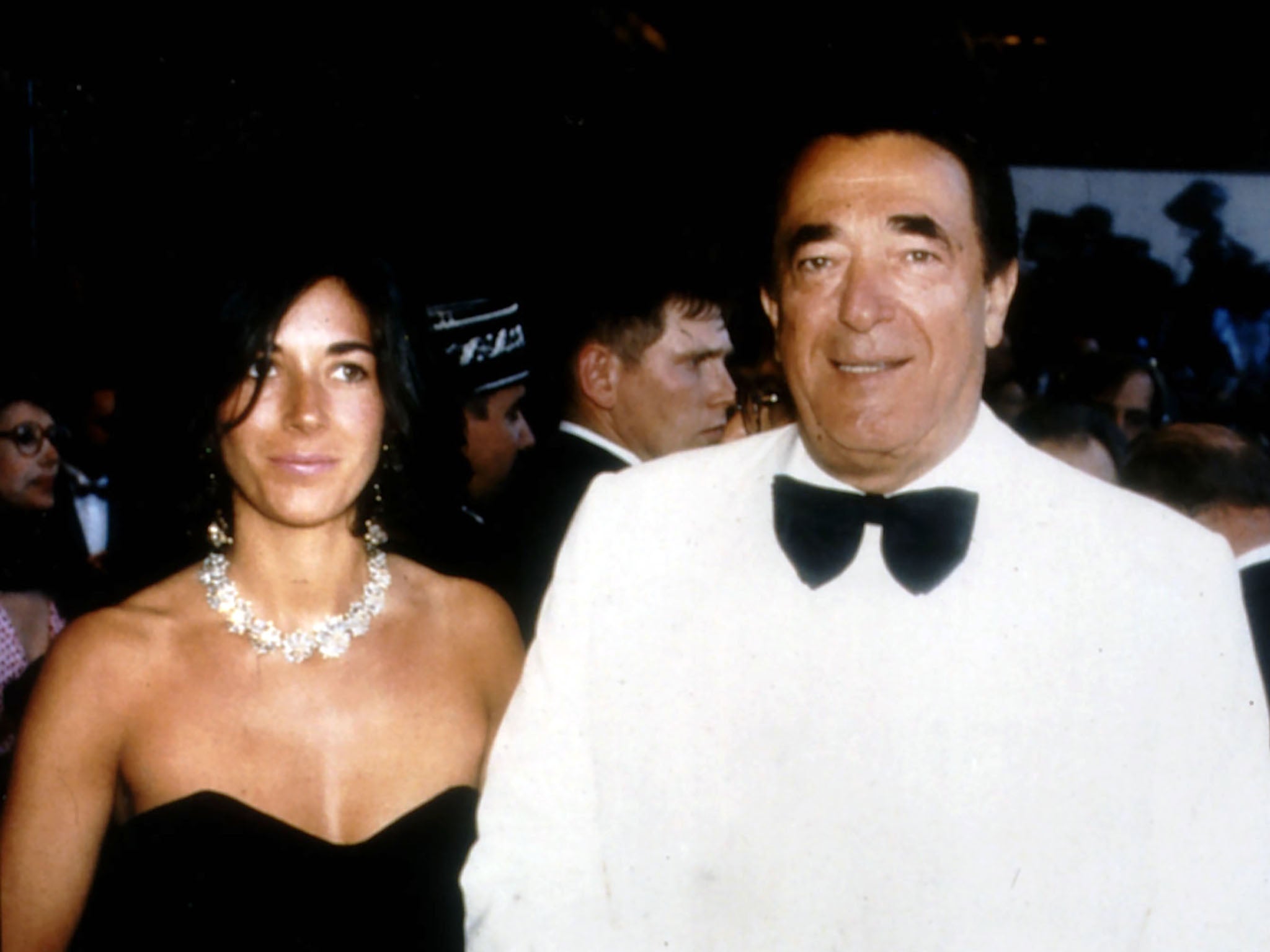House of Maxwell review: BBC true crime docuseries is shocking if only occasionally revelatory
Three-parter explores the tangled web of the paranoid Robert Maxwell, his daughter Ghislaine, and later the horrors of Jeffrey Epstein

There’s a scene in the first episode of House of Maxwell – the BBC’s three-parter on the life and crimes of businessman Robert Maxwell and, later, his daughter Ghislaine – where they interview the buyer of a bit of family memorabilia.
A couple of years after Robert Maxwell’s death, his estate was apparently so skint that the entire contents of the family’s stately home in Oxfordshire were auctioned off by Sotheby’s – paintings, furniture, even family pictures. This punter explained that he’d bought a nice but fairly ordinary-looking table lamp, but that when he’d got it home and removed the shade, he had discovered a couple of microphones attached to it. Maxwell, legendarily paranoid, had been eavesdropping on his own family for evidence of disloyalty. Even Ghislaine, his favourite.
The family were not alone, we find. Maxwell had also set about taping the phone conversations of his senior executives at Mirror Group Newspapers and the Maxwell Communication Corporation. These recordings, never before seen or heard, along with a collection of home videos made by a film crew the vain Maxwell kept in tow, make up the more revelatory aspects of the series.
Interspersed with breathtakingly bombastic corporate propaganda videos and contemporary news footage, they are fascinating to watch: the Maxwells, media royalty, enjoying birthday parties and the like, with little Ghislaine plainly luxuriating in her father’s favour. But they don’t add that much to the vast and still growing body of Maxwellology that’s already out there.
The phone calls to and from Maxwell’s top management, for example, are predictably about where on earth millions of pounds had disappeared to, whether they were ever coming back, and, in Maxwell’s last hours in November 1991, where, how and why he’d disappeared. “You heard anything?” “It’s going to blow up” – that sort of dialogue. In truth, we still don’t entirely know about the cash, or the old monster himself.
With clear chronological presentation, stylish graphics, interviews of survivors in the old Maxwell home, and a baleful narration from Shaun Dooley, the producers do give us a fine portrait of a dysfunctional family and business empire – both too difficult even for the admittedly crafty Maxwell to make a success of. Such was the atmosphere in Maxwell Corp that the widow of finance director Lawrence Guest recalls her husband being advised to take different routes to work to avoid assassination. Maxwell’s secretary tells us how a phone conversation between him and Ghislaine consisted of a series of meows.
We wander through the familiar Maxwell scenery: his megalomania; his obsessive rivalry with Rupert Murdoch; his thieving of £300m from the company pension fund; the early links between him, Jeffrey Epstein and Ghislaine; his career as a British/Russian agent in post-war Berlin. And, of course, his mysterious drowning at sea – Maxwell either falling, jumping or being pushed off his boat and suffering a heart attack.
The most novel suggestion about his demise is made by Ray Errol Fox, an award-winning documentarist, who took Maxwell to the Holocaust memorial site in Israel. There, Maxwell found the obelisk marking the murders of his entire family – his mother, father and six siblings – in Nazi concentration camps. They were poor farmers in Solotvina, Carpathian Ruthenia, in modern-day Ukraine. We watch the big, expansive Maxwell crumple into tears. Shortly after, Maxwell was on his yacht, the Lady Ghislaine, off the Canary Islands. Soon after that, he was dead.
Fox suggests that the balance of Maxwell’s mind was disturbed by those echoes of the past, as well as by his imminent financial ruin and disgrace, and that his death was suicide. But everything that goes before attests to Maxwell’s limitless belief in himself. He’d also survived many other crises. Ghislaine was convinced he was murdered, one of her friends says, which would mean that the two men she admired most – her father and her one-time lover Epstein – had similarly unresolved deaths. We will learn more about her own unresolved life in the next episodes, and you will want to watch them.
Join our commenting forum
Join thought-provoking conversations, follow other Independent readers and see their replies
Comments


Bookmark popover
Removed from bookmarks